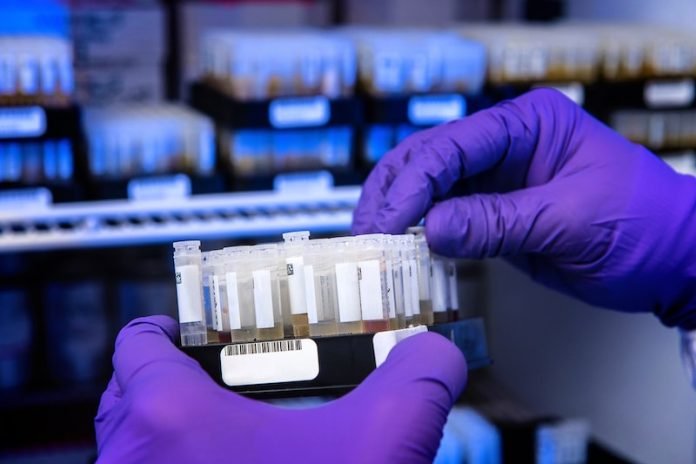
Many treatments for COVID-19 focus on the spike protein that the virus uses to bind to human cells.
While those treatments work well on the original variant, they may not be as effective on future ones. The Omicron variant, for example, has several spike mutations.
In a new study from…, researchers examined another protein that’s crucial to the virus’s replication and remains relatively consistent across different coronaviruses.
This protein, called Nsp13, belongs to a class of enzymes known as helicases, which play a role in how the virus replicates.
Through this work, the scientists have also uncovered three different compounds that can bind to Nsp13 and inhibit virus replication.
These inhibitors could serve as a valuable starting point for designing drugs that target helicases in order to treat COVID-19.
For the past two years, the researchers have used advanced computational simulations to study proteins that allow the virus that causes COVID-19 to replicate or infect cells.
The simulations, which require months of extremely demanding computations with powerful algorithms, ultimately reveal how the virus works at the molecular level.
In this project, the team examined the protein Nsp13, which unwinds double-stranded DNA into two single strands—a critical step in replication.
They found that the moment an outside molecule binds to certain sites of the protein, it disrupts this communication network. That means the protein can no longer unwind the DNA efficiently and it becomes more difficult for the virus to replicate.
Several compounds had already been reported as Nsp13 inhibitors, but the researchers selected three compounds to test within their simulations: bananin, SSYA10-001, and chromone-4c.
The researchers found that all three appeared to disrupt the Nsp13 protein effectively.
The researchers have even used the information from their simulations to design a new drug to treat COVID-19, which they hope to publish within the next few months.
If you care about Covid, please read studies that weight loss may help prevent severe COVID-19, and it is better to get COVID vaccination in afternoon.
For more information about health, please see recent studies about why a drug used to treat severe COVID-19 may only benefit men, and results showing that Pfizer vaccination provides 70% protection from Omicron.
The study is published in Science Advances. One author of the study is Prof. Juan de Pablo.
Copyright © 2022 Knowridge Science Report. All rights reserved.




